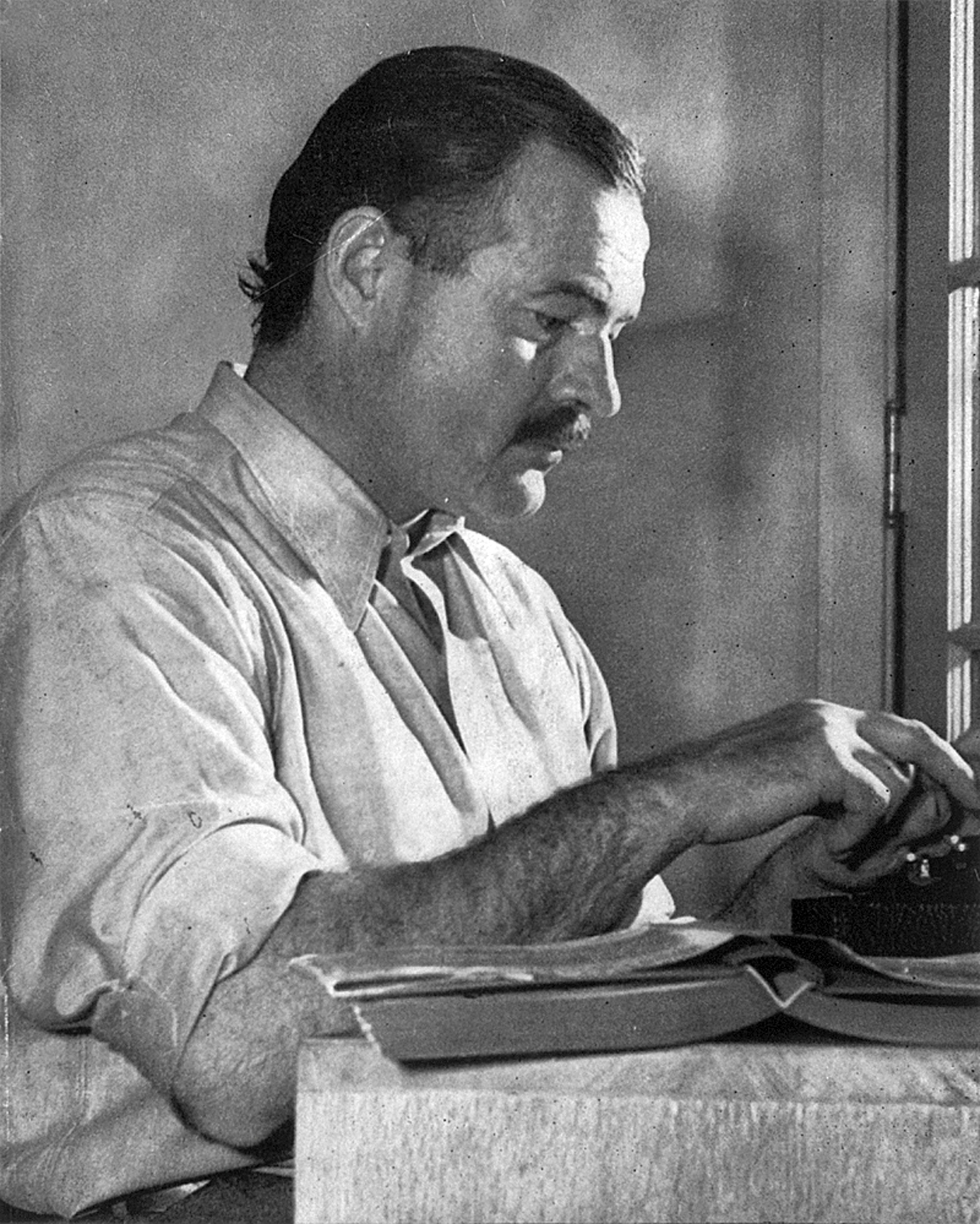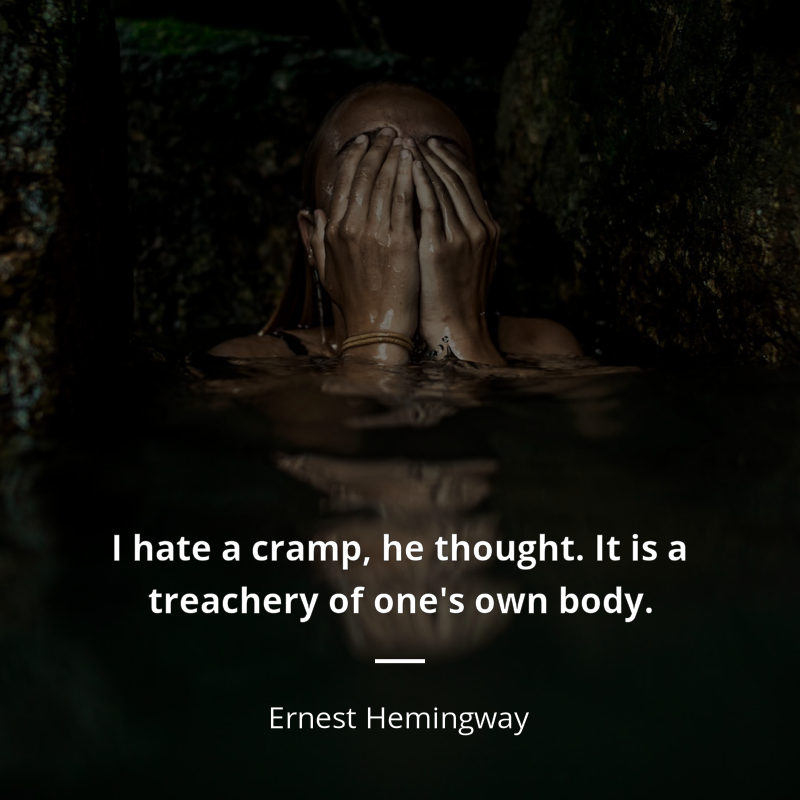
“I love you and I always will and I am sorry. What a useless word.”
Source: The Garden of Eden
Uncover Hemingway's timeless wisdom. His iconic quotes explore love, happiness, writing, and self-discovery. Experience the profound complexity and beauty of life through his inspiring words.
Ernest Miller Hemingway was an influential American novelist, short-story writer, and journalist known for his economical and understated writing style. His work, which embodied his iceberg theory, had a significant impact on 20th-century fiction. Hemingway lived a daring lifestyle and cultivated a public image that earned him admiration from subsequent generations. He received the prestigious Nobel Prize in Literature in 1954 for his contributions to the literary world. Over his career, Hemingway published an impressive body of work that includes seven novels, six short-story collections, and two nonfiction books. Several more of his works were released posthumously, solidifying his place as one of America's literary greats.
Raised in Oak Park, Illinois, Hemingway briefly worked as a reporter for The Kansas City Star after finishing high school. However, he soon decided to enlist as an ambulance driver during World War I and served on the Italian Front. Unfortunately, he sustained severe wounds in 1918 and returned home. These wartime experiences heavily influenced his acclaimed novel A Farewell to Arms. In 1921, Hemingway married Hadley Richardson before moving to Paris where he worked as a foreign correspondent for the Toronto Star. During this time, he came into contact with the modernist writers and artists of the "Lost Generation" expatriate community in Paris—an experience that profoundly shaped his writing style. He published his first novel, The Sun Also Rises, in 1926 and subsequently divorced Richardson before marrying Pauline Pfeiffer. His coverage of the Spanish Civil War fueled his book For Whom the Bell Tolls while also resulting in another divorce with Pfeiffer. Later on, Martha Gellhorn became Hemingway's third wife until they separated when he met Mary Welsh during World War II in London. As a journalist covering significant historical events like the Normandy landings and the liberation of Paris alongside Allied troops, Hemingway played an active role in war reportage. He had permanent residences in Key West, Florida throughout the 1930s and in Cuba during the 1940s and 1950s. Hemingway's life took a tragic turn during a trip to Africa in 1954 when he was involved in two plane accidents within consecutive days that left him with lifelong pain and health issues. Ultimately, he died by suicide at his house in Ketchum, Idaho, in mid-1961.

“I love you and I always will and I am sorry. What a useless word.”
Source: The Garden of Eden
“You ought to dream. All our biggest businessmen have been dreamers.”
Source: The Sun Also Rises
Colonel John Boyle and David in Ch. 7
Source: The Garden of Eden (1986)
“You can write any time people will leave you alone and not interrupt you.”
Paris Review interview (1958)
Context: You can write any time people will leave you alone and not interrupt you. Or rather you can if you will be ruthless enough about it. But the best writing is certainly when you are in love.
Source: The Old Man and the Sea
“But did thee feel the earth move?”
Source: For Whom the Bell Tolls
“Once writing has become your major vice and greatest pleasure only death can stop it.”
Paris Review interview (1958)
“I don't want to be your friend, baby. I am your friend.”
Source: A Farewell to Arms
“There are many who do not know they are fascists but will find it out when the time comes.”
Source: For Whom the Bell Tolls
Based on a 1957 Ken Purdy quote, first mentioned in a posthumously published interview with Alfonso de Portago: note: :“I have a quotation in a story, a piece of fiction that won't be published until this summer,” I told Portago, “something that I thought at the time I wrote it you might have said: that of all sports, only bull fighting and mountain-climbing and motor-racing really tried a man, that all the rest are mere recreations. Would you have said that?”
I tend to agree with Hemingway who said something to the effect that only mountain climbing, bull fighting and automobile racing were sports and that everything else was a game.
Source: Ken W. Purdy (August 1957) "Portaro; The real story of the sizzling Spaniard" https://archive.org/details/sim_car-and-driver_1957-08_3/page/n70 Sports Cars Illustrated (Ziff-Davis: New York) vol. 3 no. 2 p. 63 note: :“There are three sports that try a man,” she remembered Helmut Ovden saying, “bullfighting, motor racing, mountain climbing. All the rest are recreations.”
Source: Ken W. Purdy (27 July 1957) "Blood Sport" https://archive.org/details/sim_saturday-evening-post_1957-07-27_230_4/page/92 The Saturday Evening Post (Curtis: Philadelphia) vol. 230 no. 4 p. 92
Source: An early attribution to Hemingway is the essay "Why" by Gene Hill, published in Guns & Ammo and reprinted in 1972 in A Hunter's Fireside Book: Tales of Dogs, Ducks, Birds and Guns (Winchester Press: New York) ISBN 0876910762 p. 96
Source: The Old Man and the Sea
“I hate a cramp, he thought. It is a treachery of one's own body.”
Source: The Old Man and the Sea
Source: A Farewell to Arms
Letter to F. Scott Fitzgerald (28 May 1934); published in Ernest Hemingway: Selected Letters 1917–1961 (1981) edited by Carlos Baker
As quoted in Reporting (1964) by Lillian Ross
Source: A Moveable Feast
Source: The Old Man and the Sea
“Mice: What is the best early training for a writer?
Y. C.: An unhappy childhood.”
Source: Ernest Hemingway on Writing
“He rested sitting on the un-stepped mast and sail and tried not to think but only to endure.”
Source: The Old Man and the Sea
“No; that doesn't interest me.'
'That's because you never read a book about it.”
Source: The Sun Also Rises
Source: Selected Letters 1917-1961
